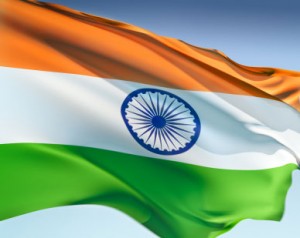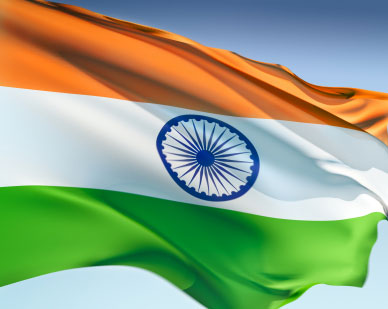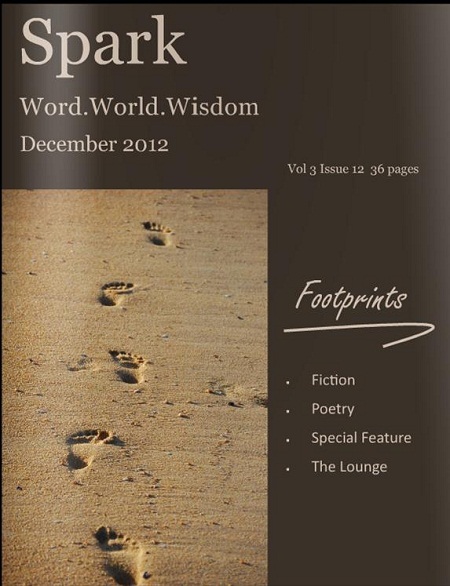by Jayshree Misra Tripathi
[box]What does it mean to be an Indian living in a foreign country which, over a period of time, has also become your homeland? Jayshree Misra Tripathi talks about a tale that is close to her heart – of moments of life in an alien land and the Indians she meets there.[/box]Person of Indian Origin (PIO): has acquired citizenship of another country.
There are over 20 million PIOs in the ‘Diaspora’ across 110 countries.
“Communities play a significant role(s) in the economic, scientific, political, intellectual and cultural richness of the countries in which they settle……” from the UN Report on the Diaspora 2006
******************************************************************************
I shall tell you a tale close to my heart, of flash moments of life in an alien land. Memories fade, as do faces, but the connection remains. Come, dear reader and ‘multi-listen’, if I may coin a hyphenated word, in the stream of consciousness we all possess.
It is almost time. I am hyperventilating in front of a full-length mirror in the box-room, hardly a boudoir, for the residence had once belonged to a rich colonial coffee-farmer. A quaint and picturesque cottage, it serves its purpose, with sprawling lawns, eucalyptus and jacaranda trees, that now tilt sideways, to follow the sun………. I must stop quoting from songs, especially now that I have touched the soulful mid-fifties!
The pleats of my saree fall delicately straight, the soft silken fabric drapes well, with a sensual feel, but alas, it is a bit short! How can the weavers do this to me? I have bought handloom sarees ever since I was twenty one! I have championed their art in over eight countries, across all the oceans. They have cast off at least a four-fingers worth of the border! If the pleats disengage while I glide on these slightly silly silver high heels, the hoi polloi ladies outside will scoff in disdain!
DC glares through the archway and impatiently glances at his watch.
The butterflies in the pit of my stomach cause such a flutter that I stand absolutely still, but I propel myself forward. Even after 30 years in the foreign service, the thought of facing a large crowd is still intimidating! Our very own home-trained desi Jeeves opens the elegantly carved front door, imported mahogany of course, with its ornate brass knobs and handles that glisten with much well-applied Brasso. The colonials certainly knew how to live like lords, far away from their often humble abodes ‘back home.’
 I raise my head, lick my parched lips and step outside, two steps behind DC. You could hear a pin drop. I smile at the sea of faces and bend with folded palms, in our ancient greeting, Namaskar, then stand ram-rod straight as the national anthem is played. DC has done the honours, walked briskly up to the flag-post and tugged the rope, so that it billows forth, while the rose petals descend in tune with the anthem. I am truly happy. For the duration of the anthem, I swell with pride and goose-bumps.
I raise my head, lick my parched lips and step outside, two steps behind DC. You could hear a pin drop. I smile at the sea of faces and bend with folded palms, in our ancient greeting, Namaskar, then stand ram-rod straight as the national anthem is played. DC has done the honours, walked briskly up to the flag-post and tugged the rope, so that it billows forth, while the rose petals descend in tune with the anthem. I am truly happy. For the duration of the anthem, I swell with pride and goose-bumps.
It is a National Day, a very special occasion in our diplomatic world – adding to the collective memory of a people transplanted, but who remain strongly rooted in their Indian heritage. For each of whom an invitation from DC is extremely important, as it underscores their connection to India.
The ceremony unfolds. After the speeches, it is time to mingle. I cannot hyperventilate now, I chide myself and sally forth to meet our guests.
“Namaskar! How are you?”
They want to shake hands, I cannot refuse. Some even peck me on my Lakme-powdered cheeks or blow into the air, “Muah, muah.”
A powerful hand grabs my wrist. Startled, I jerk back and turn sideways, only to face an elderly lady, with beautiful, dangling silver jhumkas and long black hair cascading behind her, styled for this special occasion.
“Corrupshion, Caammonwealth Games! How will India deal with it??”
I do not mock her accent as English is her third or fourth language, a fact which most people tend to ignore. She speaks the local language fluently and Hindi too. Why do we Indians always make fun of each other’s accents? East, west, north, south… we just speak English in our own ways, as we have been taught, in our various states. How is it that we do not mock the Europeans for their accents?
C’est la vie?
Where is DC?? He has to answer the corruption issue. Over the past 25 years I have had to learn how to often bite back a retort, swallow my pride and intelligence, along with the rest of it. It is often hard to accept lost career opportunities as one grows older, but deep down I know that I had made the right choice in following my husband around the world on his postings. It has been an incredible life!
I do enjoy meeting people everywhere and tend to rally forth on subjects that are non-political, yet truly close to my heart – the education of children from economically-challenged families, literacy of adult women, who have spent most of their lives trying to fend for their families and have been unable to step-up the economic ladder – universal issues. How may we help families move out of slums? Life in Cardboard Boxes for so many unfortunate souls… in the gullies of New York or New Delhi or the slum in Nairobi called Kibera? Sad. How may we as citizens of the world help them? We need to preserve our environment too. A woman’s work is never done!
I stroll across the lawn to greet another lady, in her mid-seventies.
“Fourth generation!” she says.
There is so much of implied history in just those two words. I nod in revered acknowledgement and endeavour to steer her towards the refreshments.
“No onions, no garlic.”
I nod my head vigorously as we have set up a special table for such guests.
“You know, my grandfather used to ride bicycle and go far to sell things. It was hard work, very hard work. He poor. But my father built 25-room house. God is great.” Transliteration works well in such international environments. I nod yet again in respect, take my leave and move on. She is a truly dedicated philanthropist and does not bat an eyelid at charitable functions as she signs away $150,000 cheques as donations.
I move ahead and exchange smiles with the local foreign office lady in her traditional kitenge dress with the colourful head-gear. “Jambo!Karibu!Welcome!”
By the time I reach the corner of the garden, guests have begun to partake in the mid-morning luncheon repast. The ‘bitings’ (yet another quaint local term for snacks) have been well-received, for I note the friendly nods and satisfied smiles on the guests’ faces. There are a variety of fruit juices with exotic names and I have added our very own sweet and namkeen lassi to the list. People love the typically Indian fare. I always have a dish from each region of our land and this too, is well appreciated.
It is the conversation of the Indian-origin guests that is fascinating! I soak in their words. Rallying about local politics, excited about their new constitution, about India and their ancestors, their well-settled children in the U.K. or the U.S., their travelling for six months in a year… I want to assimilate as much as I can in this brief period of interaction, even at a National Day function! Yes, I do! True, I may never meet them again, yet they want me to know their entire lives!
We talk. Just a fortnight ago, a meaningless death had been reported. A young Indian-origin doctor was caught in the crossfire between the police and some robbers in a nearby town. And then the PIO real-estate baron shot at one of his construction sites, still lies in a coma at a local hospital. A PIO woman who stopped to ask for directions at a petrol pump had her earrings snatched away before the power windows of the car rolled up. And PIO guests visiting from London, whose taxi, caught in a traffic jam on a winding road uphill, had the rear-view mirrors removed in a fraction of a second.
It is time for the guests to depart. Farewell for another year.
“Namaskar, Namaskar… thank you, thank you for your presence” I bid them farewell.
The flag flutters in the slight afternoon breeze as I pick my steps back into the residence. In a few hours, the garden will be restored to its pristine beauty, without the tents and tables. There will be small talk in the city this evening about the event and a critique tomorrow! Who was present, what he or she wore, whom she or he spoke at length to, or did not… and the food!
A small item in the next day’s newspaper catches my attention. It is tucked away on the third page, a few terse lines, stating the untimely death of a PIO attacked at the entrance of his home at around 9 pm. The assailants had shot the asgari at the gate, then shot the PIO and the driver, ransacked his car and fled. There is the usual talk of the dissatisfied young who need ‘fast money’.
The sacrifices made by such old-timers in their chosen homeland, who had brought economic strength to the country and fought alongside the locals in the anti-colonial resistance movements, means little to the present generation. It seems PIOs are helpless prey to kidnappings, assaults and even untimely death.
My cell phone rings shrilly and disrupts my chain of thought. It is DC.
“Did you hear about the shooting? He was at our reception yesterday.”
I am distressed by the thought that we may have greeted each other a few hours prior to his untimely demise. My heart sinks. How shall I grieve if I cannot recall his face? All I am aware of is a deep sense of foreboding and that such events will remain embedded in my mind forever. No closure is foreseen, just a sense of loss. I wonder if this is just another day in the diaspora for me.
Jayshree Misra Tripathi has taught English for the International Baccalaureate (IB) Diploma and as a second language. Born in Orissa (1956), she was educated in England, Orissa and Delhi University, where she received her M.A. in English in 1978. She has worked briefly, in the mid-80s, with the news agency UNI and the Times of India, Delhi. She recently qualified for a postgraduate diploma in Human Rights Law from the National Law School of India University, Bangalore. Jayshree is the wife of a foreign service officer in the Indian Civil Services and has three children.
[facebook]Share[/facebook] [retweet]Tweet[/retweet]







Such a moving article! I wish more diplomatic wives would come out to tell us all they do, quietly and behind the scenes for women, children and the oppressed in the countries they reside.
A beautiful,evocative piece. Thank you for letting me walk beside you for a while.